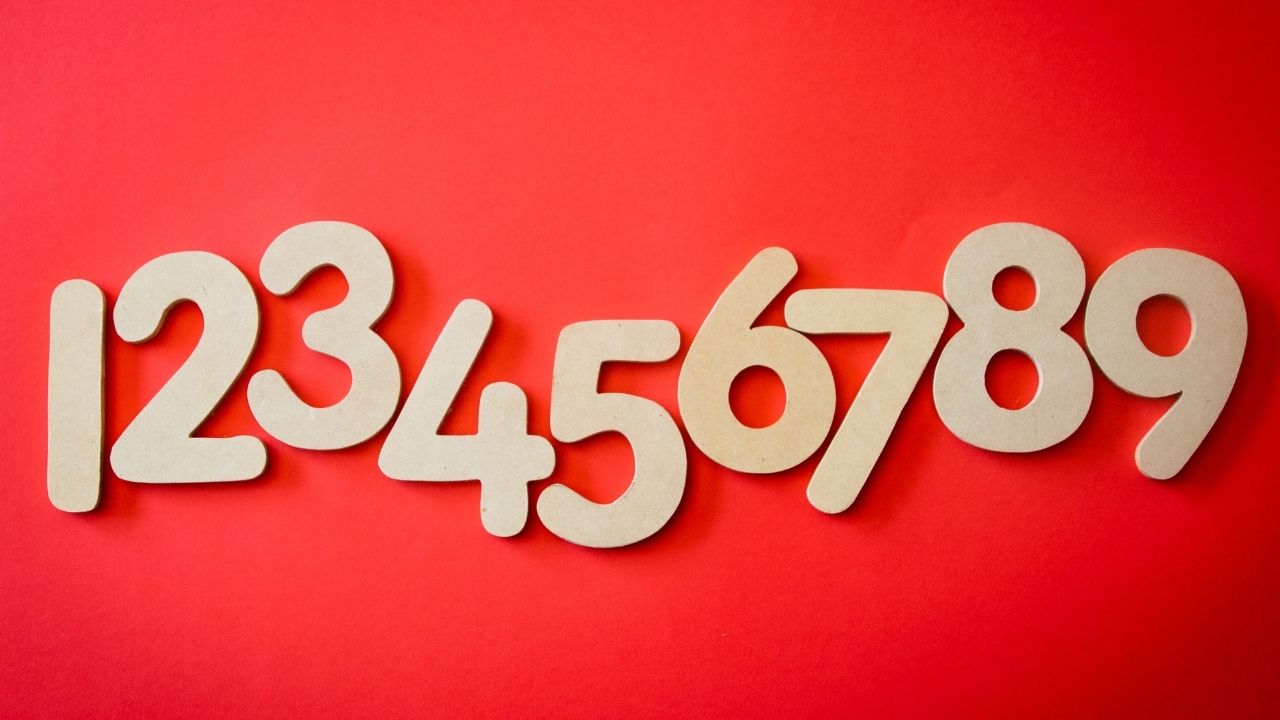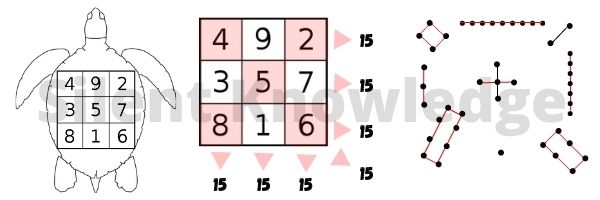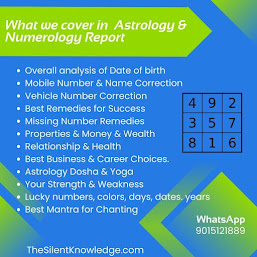Different Types of Numerology
It's
no surprise that numerology is becoming increasingly popular as people seek to
understand their fate and lives. Many scholars across the world have developed
different types of numerology systems in an attempt to find an accurate
numerology system that would deliver better outcomes. Some of these are
well-known and widely used across the world. The foundations of meaning for
each number are built on a scientific and philosophical concept of how the
universe works and are based on math. The best place to start is to study more
about numerology and the many approaches.
Numerology
is an ancient science that dates back to ancient civilizations. There has been
a significant shift in culture, outlook, and numbers since ancient times.
Regardless of where you are, the numbers remain constant. Despite the fact that
languages and customs vary, the value of numbers and their corresponding
meanings have always been and will continue to be unchanging. Before the Greeks
and Romans learned about numerology, China, Japan, India, Babylon, and Egypt
had already practiced it. It will be simpler to understand numerology if you are
familiar with astrology, as they are related, although different in many ways.
Below
are a few types of numerology, along with brief descriptions of each.
Chaldean Numerology
Chaldean
numerology is thought to be the earliest system of numerology ever developed. It
has its origins in Babylonia. The Chaldean numerology is where all other major
sub-types of numerology get their start. The Chaldean approach, often known as
Mystic numerology, is harder to implement. Nobody knows who created this system
in the first place. Even though the Chaldean number system is efficient in
determining unfortunate or lucky numbers, it does not provide a logical,
rational, comprehensive strategy that can be used in everyday life because it
is not complete.
1 | 2 | 3 | 4 | 5 | 6 | 7 | 8 |
A | B | C | D | E | U | O | F |
I | K | G | M | H | V | Z | P |
J | R | L | T | N | W | ||
Q | S | X | |||||
Y |
|
|
|
|
The importance of the whole date of birth, as well as the full name, is included in this style of numerology, which is thought to have influenced Pythagoras. The outside characteristics of a person are represented by single numbers, while the interior influence is shown by double digits. Furthermore, despite the fact that the number 9 might exist as the final total of computation, this method of numerology fails to assign it to any letters. Instead of 1 to 9, this method only employs integers from 1 to 8. In the Chaldean System, Master Numbers 11, 22, and 33 are also regarded as exceptional.
Kabbalah Numerology
Kabbalah numerology has a mystical element, as it is rooted in Hebrew mystical science. It is perhaps one of the most well-known and extensively utilized varieties of numerology. Each component, entity, and element, according to Kabbalah, is made up of a certain type of energy. The nucleus of life force and power is made up of this energy. It tries, like astrology, to reveal more about who we are beyond our shields and fears.
|
1 |
2 |
3 |
4 |
5 |
6 |
7 |
8 |
9 |
|
A |
B |
C |
D |
E |
F |
G |
H |
I |
|
J |
K |
L |
M |
N |
O |
P |
Q |
R |
|
S |
T |
U |
V |
W |
X |
Y |
Z |
|
Instead of including a person's birthdate, Kabbalah Numerology simply requires their first name. It's similar in that each letter has a numerical equivalent. This practice is commonly used by Jews all over the world, and it has even influenced many personalities to believe in it today. This type of Numerology assists in the discovery and acceptance of one's inner self, as well as the acceptance of one's flaws in order to improve oneself and become a perfect human being.
Tamil Numerology/ The Vedic Numerology/ The Indian Numerology
Vedic Numerology is considered to be one of the earliest types of numerology. It emphasizes how a person views himself, his/her ideas, and the characteristics he or she possesses. It also refers to a person's abilities outside of how he interacted with others. In terms of the strengths and weaknesses that people are born with and will learn and perfect through this lifetime, the numbers describe the personality type, the "ahamkara" (ego), and the karmic legacy.
Tamil is
the name of a state in India called Tamil Nadu. According to Indian numerology,
each person has three numbers: a psychic number, a destiny number, and a name
number. They understand that numbers are present in all aspects of life and that
their vibrations have a profound impact on us on both a conscious and
unconscious level. The seven stars, along with Rahu and Ketu, which are
considered the head and tail of the moon, divide the numerals 1 through 9 in
Vedic numerology.
The Chinese numerology
As per
Chinese legend, Emperor Fu Hsi was one of the famous five magical rulers. He
made several advancements to ancient Chinese civilization. According to one
narrative about him, he observed a fortunate turtle with a 3 by 3 grid design
on its shell. On its shell, the
turtle possessed a strange pattern of dots ranging from 1 to 9. When the
dots were added vertically, horizontally, or diagonally, they equaled 15, and
so the loShu grid was born. So, the Lo Shu Grid is a 3x3 square grid that is
used in Chinese Numerology. A birth chart grid has nine sections, each of
which is assigned a number.
Chinese
numerology is divided into three categories: western, traditional, and ki. The Lo Shu grid, also known as the magic
square, is used to position the numbers in the order they appear in one's date
of birth, and the outcome may be utilized to gain a very accurate knowledge of
one's life and character.
The Pythagoras Numerology/ The Modern Numerology/ The Western Numerology
There were basically two types of numerology in the past: Chaldean Numerology and Kabbalah Numerology. Afterward came the contemporary version of numerology, which is now widely used, and it was invented by Pythagoras, who was later recognized as the "Father of Numerology."Numbers, according to the theorists of his time, have a more mystical connection to human fate. The Pythagorean Number System is still employed in modern numerology.
|
1 |
2 |
3 |
4 |
5 |
6 |
7 |
8 |
9 |
|
A |
B |
C |
D |
E |
F |
G |
H |
I |
|
J |
K |
L |
M |
N |
O |
P |
Q |
R |
|
S |
T |
U |
V |
W |
X |
Y |
Z |
|
Because he believed that everything could be reduced to numbers or mathematical computations, he developed this sort of Numerology. Pythagorean Numerology, like all other systems of numerology, gives special meanings to each number. Pythagoras assigned the numbers 1 through 9 to various letters of the alphabet, as well as two



















0 Comments